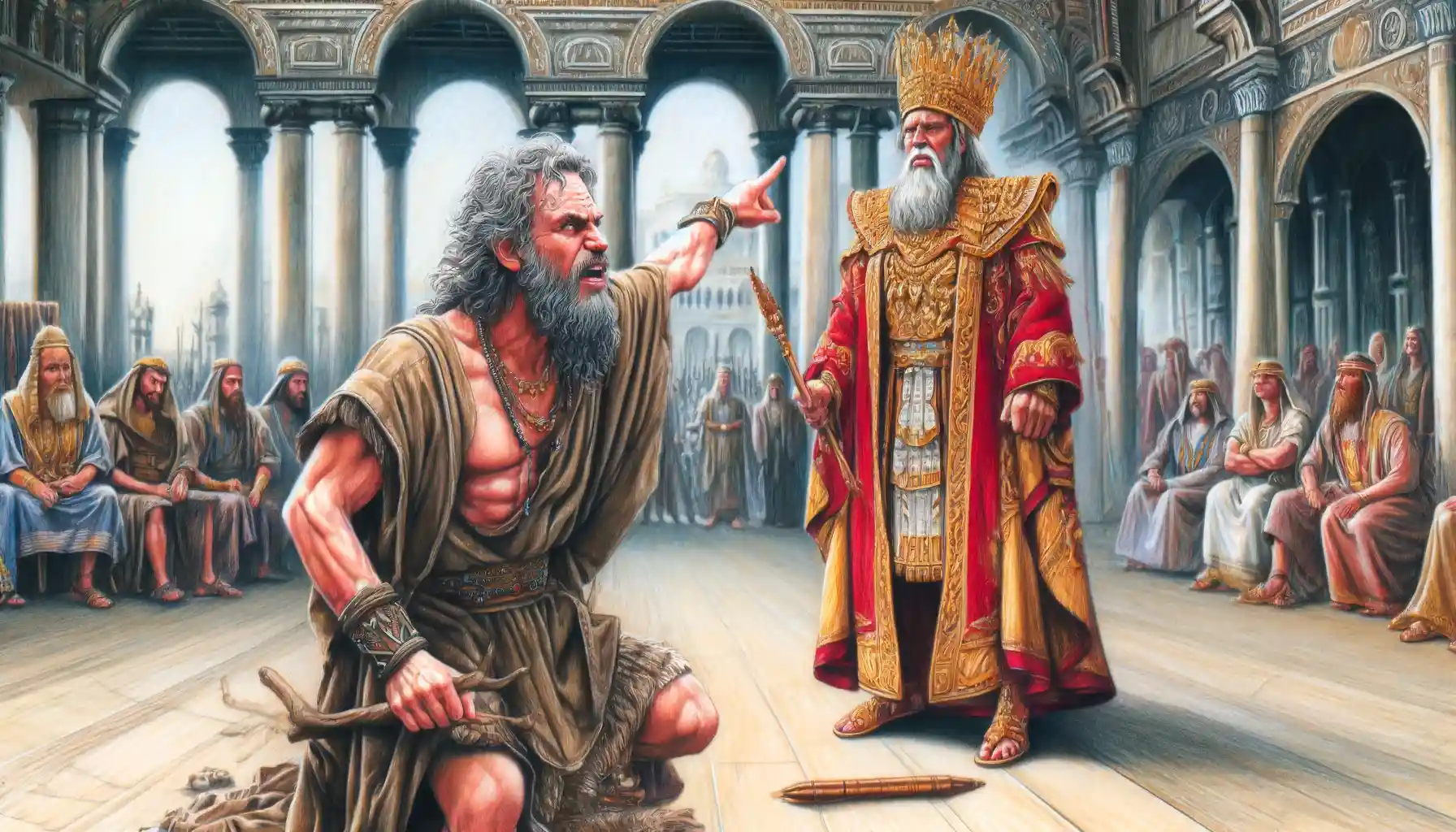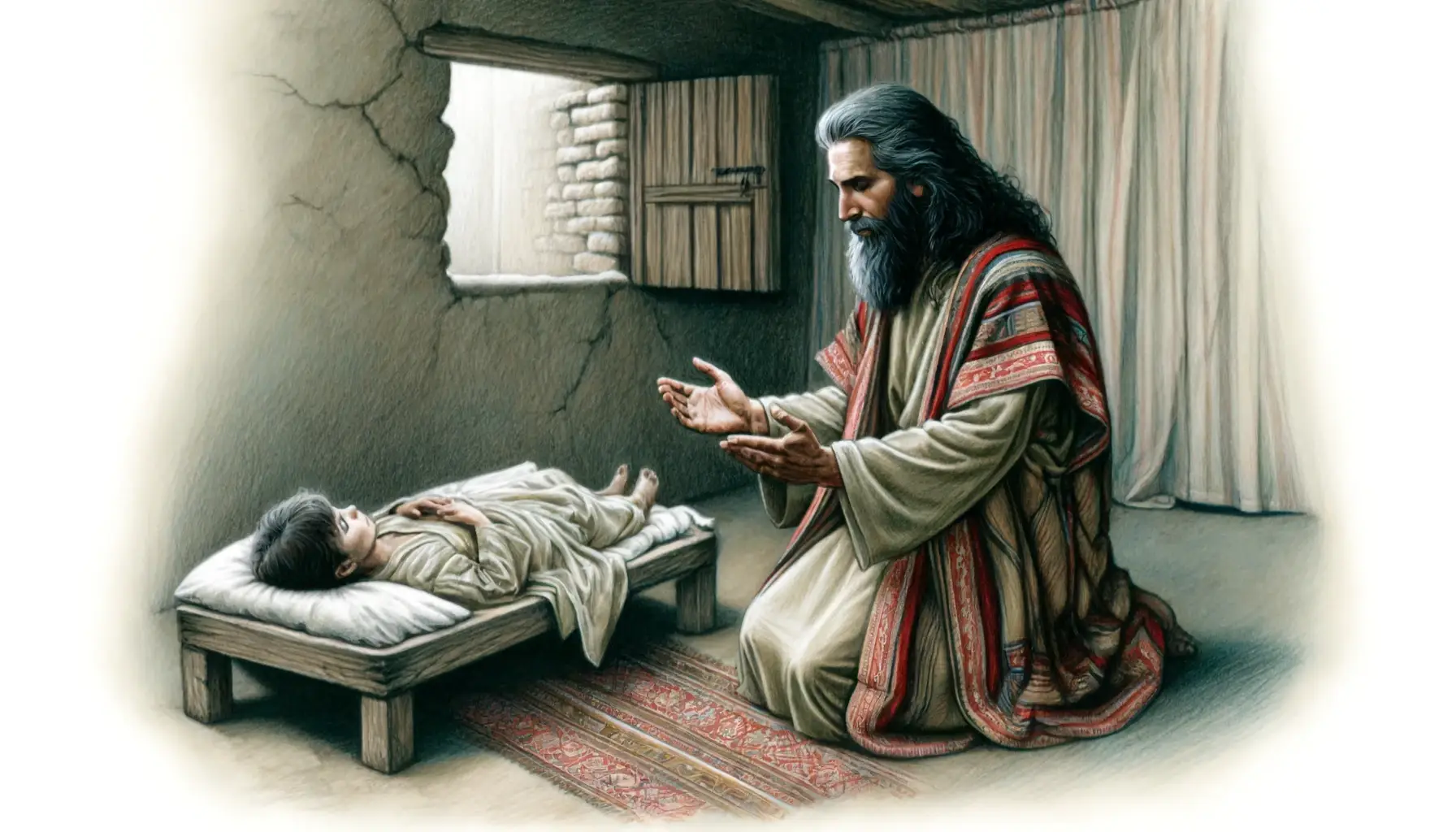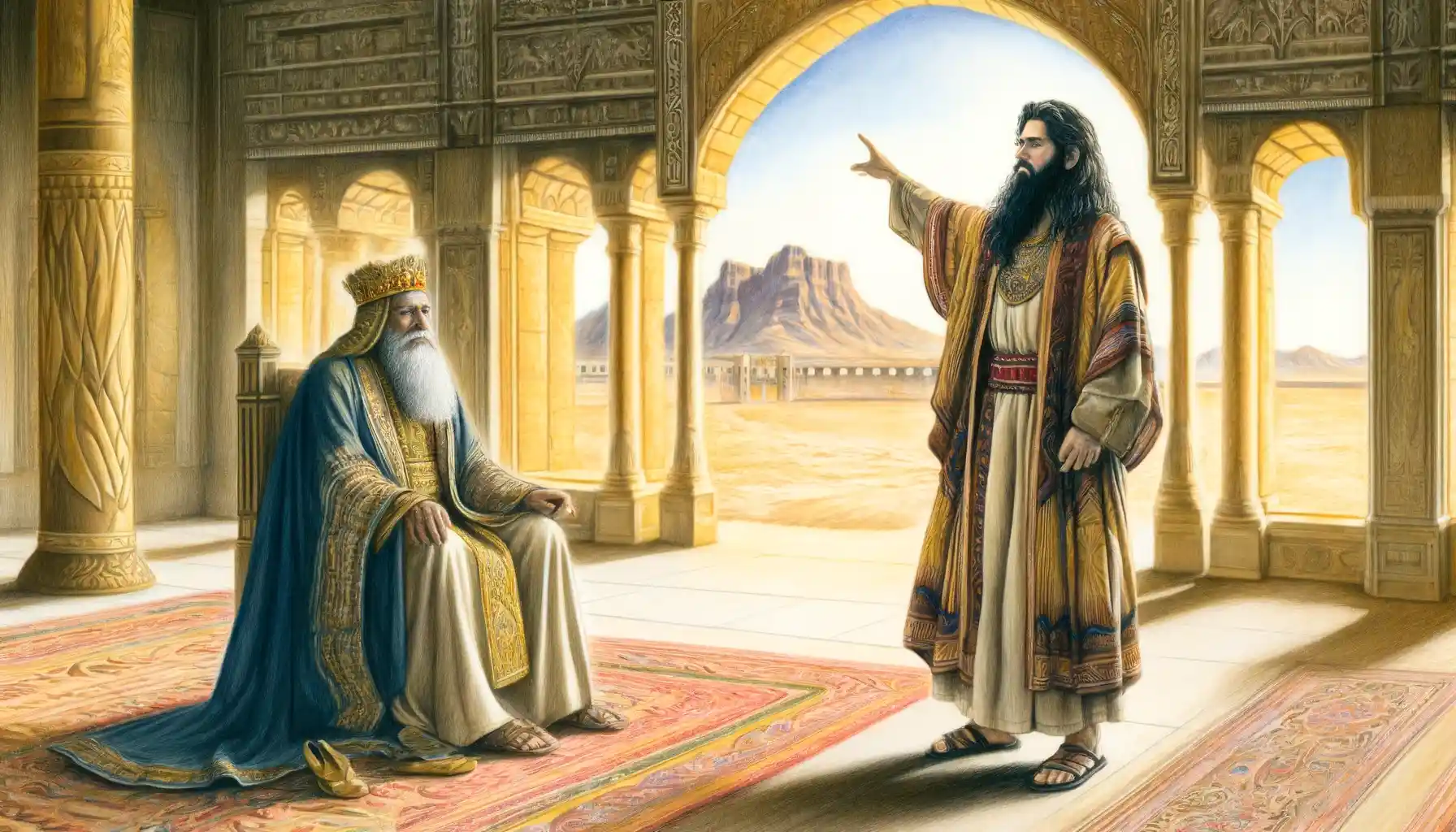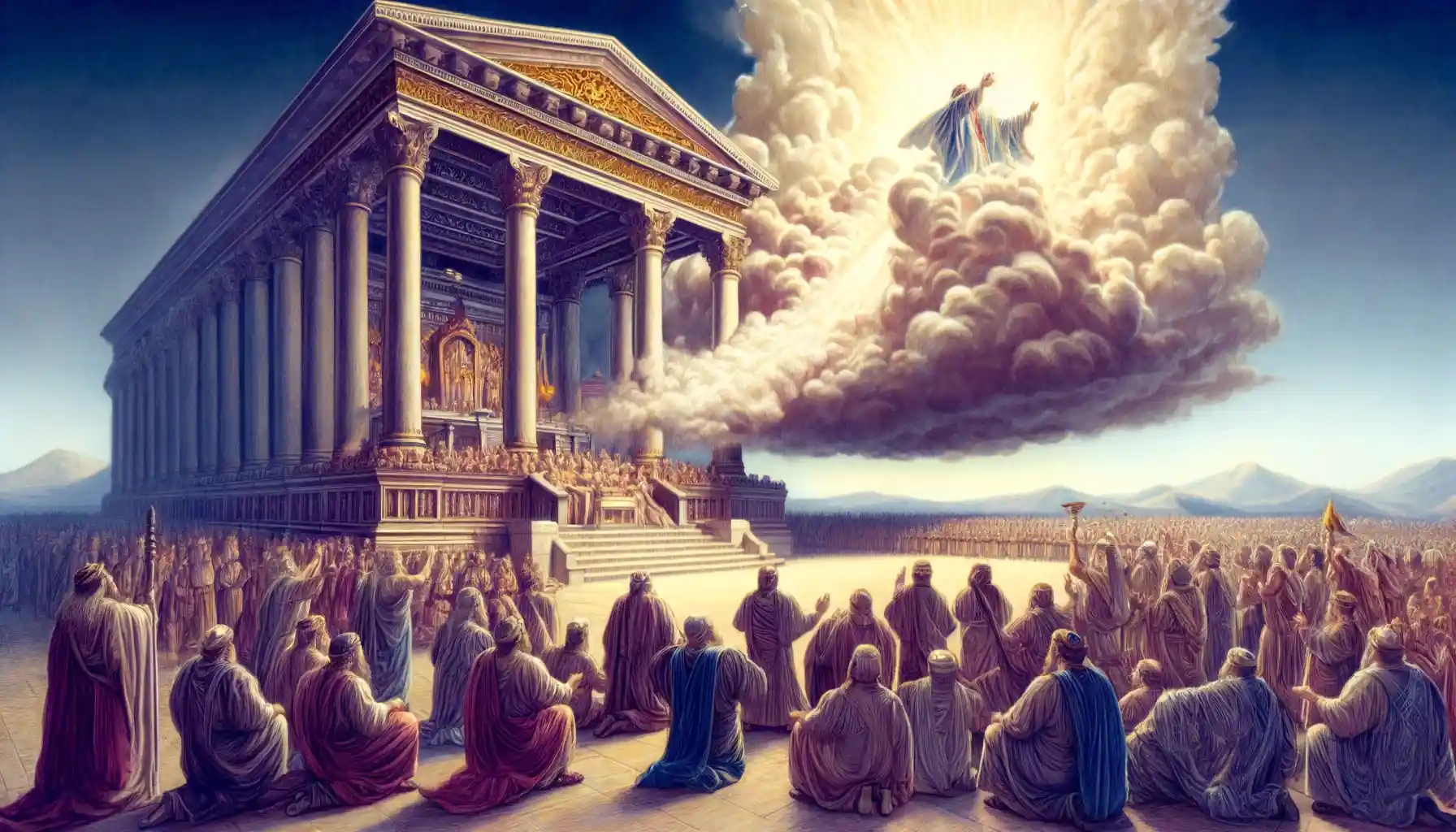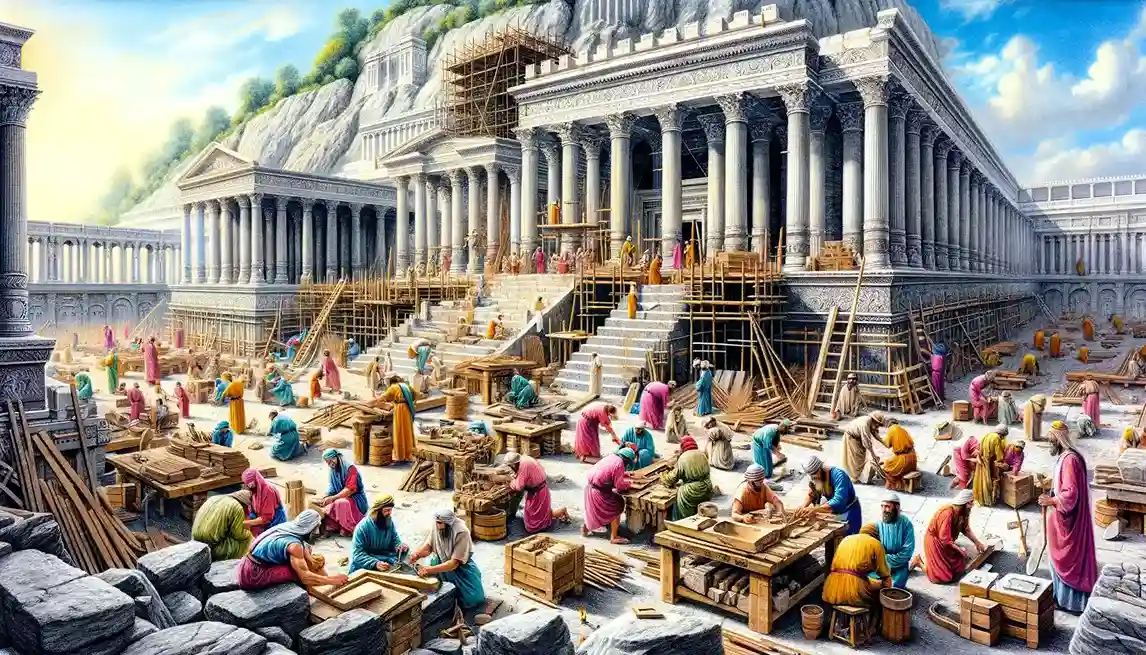In 1 Kings 17:1, Elijah suddenly appears to challenge King Ahab, announcing a severe drought as divine retribution for Israel’s idolatry, directly confronting the worship of Baal and asserting the supremacy and authority of Yahweh through a bold prophetic declaration.
In the narrative of 1 Kings 17:17-24, Elijah raises the widow’s son from the dead in Zarephath, showcasing God’s supreme power over life and death, and reinforcing the prophet’s authority as a true messenger of Yahweh, thereby deepening the widow’s faith and illustrating the reach of God’s miraculous intervention beyond Israel.
Elijah’s announcement of a multi-year drought in 1 Kings 17:1 serves as a divine judgment against Israel’s idolatry, directly challenging the worship of Baal and asserting Yahweh’s supreme control over the weather and the fertility of the land.
2 Chronicles thus acts as a mirror reflecting the spiritual health of Judah through its leaders, offering lessons on the importance of righteous leadership and fidelity to divine commands.
1 Kings provides a rich narrative that underscores the complexities of human leadership and divine governance, offering profound lessons on the consequences of adhering to or straying from divine laws.

